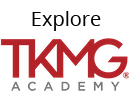

Those of you who’ve read my recent book, The Outstanding Organization, know that clarity, focus, discipline, and engagement are the four core behaviors required to achieve outstanding performance. I’ve started referring to clarity as the “big kahuna.” It’s the most essential condition for business success and, in many environments, the toughest to achieve.
The opposite of clarity—ambiguity—obfuscates and can lead to miscommunication, productivity drains, and poor decisions. In the worst cases, it can lead to the loss of human life. Of the various areas where clarity is essential (e.g., organizational purpose, customer requirements and preferences, staff roles and responsibilities, process performance, etc.), clear communication is the area my clients struggle the most with.
As simple as it may sound, word choice helps or hinders performance. Many people and organizations have a habit of using what I refer to as fuzzy words. These are words that either soften or conceal the truth, or confuse. Vague descriptors that mean different things to different people—short, long, heavy, expensive, and so on—are particularly common. Ask a group of people what constitutes “heavy” and hear the range of responses. Using fuzzy words is a performance-eroding communication habit that can be replaced with the habit of clarity.
Operating with clarity requires high degrees of comfort with the unvarnished truth and a commitment to avoid sugar coating, using politically correct language, and communicating with specificity. You can create a culture of clarity by habitually asking people to be more specific and call things as they are versus some softer version of the truth. And you can begin today by making the clarity commitment yourself.
But don’t just take it from me. I leave you with this humorous and poignant clip from the truth-teller himself: the extraordinary George Carlin. (A shout out to Chad Walters of LeanBlitz for sharing this.)